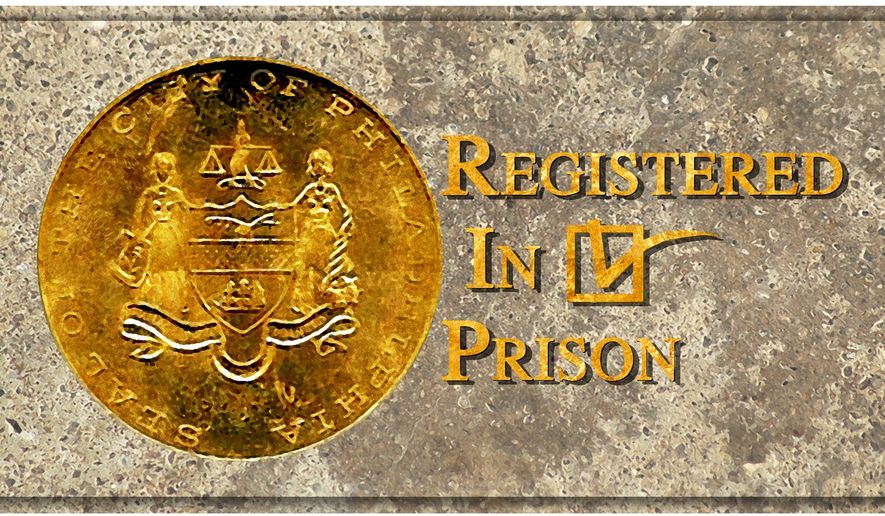OPINION:
In the City of Brotherly Love, you can retain your voter registration no matter what crime you commit.
That’s because election officials refuse to take convicted felons off the voter rolls even if they’re still serving time in jail.
One potential voter is convicted baby murderer Kermit Gosnell. In May 2013, in a case that shocked the nation, Gosnell was convicted of first-degree murder for killing fully developed babies born alive at his abortion clinic by severing their spines with scissors. He got three life terms, the latter for killing a baby that he joked was so large it could “walk to the bus.” Nine of his former clinic workers were also convicted, and four others pled guilty to murder.
Despite this history of savagery, Gosnell, 75, is still registered to vote in Philadelphia. He is listed as inactive, most likely because he has not voted in five years. However, if he were to show up at the polls, he would be permitted to vote even if he is on inactive status if he showed an ID.
If you don’t vote in two federal elections, you can be removed. But the mass murderer is still on the rolls. Why leave him there?
Also still registered to vote is Philadelphia’s former 11-term Democratic Congressman Chaka Fattah, who was convicted of racketeering and in January began serving 10 years, the second-longest prison term ever for a former member of Congress. The top dishonor belongs to former Democratic Rep. William J. Jefferson of Louisiana, some of whose cash bribes were found in his home freezer. He was sentenced to 13 years in 2009.
Fattah’s son, Chaka “Chip” Jr. is also a famous felon who remains on Philadelphia’s voting rolls. The younger Fattah received five years in prison in February 2016 for bank and tax fraud.
Although city officials maintain that Pennsylvania law limits felons’ voting rights based on their incarcerated status, a city attorney admitted that if someone were to “put a polling place in the prison,” felons on the rolls would be permitted to vote. They just can’t vote by absentee ballot. Or can they?
The absurdly shifting legal stance was exposed on April 27 during a court hearing in American Civil Rights Union v. Philadelphia City Commissioners at the Third U.S. Circuit Court of Appeals. While lawyers for the ACRU made the case that the National Voter Registration Act (motor voter) and the Help America Vote Act (HAVA) require states to remove from the rolls all ineligible voters — including convicted felons — the city dug in its heels, contending that Pennsylvania law only requires removing the deceased and people who move away.
The issue arose last year when an ACRU lawsuit forced the city to open its records, revealing thousands of noncitizens and convicted felons registered to vote. Since then, the city has refused to police the rolls.
During the hearing in Philadelphia, city lawyers admitted that convicted felons on furlough could vote while outside prison if “incarceration” was the only disqualifier, not their status as convicted criminals. One hearing participant joked about an “Election Day Furlough” when “they could all go out and vote” and then be returned to prison.
“This is no joking matter,” said J. Christian Adams, president of the Public Interest Legal Foundation, which filed the suit on the ACRU’s behalf. “Philadelphia’s voting rolls are seriously corrupt, and they not only won’t do anything to fix the situation, they think it’s actually funny. This is a disgrace.”
Last September, a U.S. District court ruled that federal law does not require city election officials to remove convicts from the rolls unless state law provides an explicit procedure for removal.
“But this reading is incorrect,” the ACRU brief notes, citing NVRA’s and HAVA’s express direction to all election officials to remove ineligible voters and keep registration lists accurate.
“A person who is incarcerated for a felony in Pennsylvania cannot vote in any way and cannot register to vote while incarcerated.” the brief states. “List maintenance [under federal law] is not merely permissible, it is mandatory.”
And so it goes in a city where in 2012, some 59 voting divisions recorded not a single vote for Republican presidential candidate Mitt Romney, and where election officials see no problem with keeping ineligible voters like convicted felons Kermit Gosnell and Chaka Fattah on the rolls.
• Robert Knight is a senior fellow for the American Civil Rights Union.




Please read our comment policy before commenting.